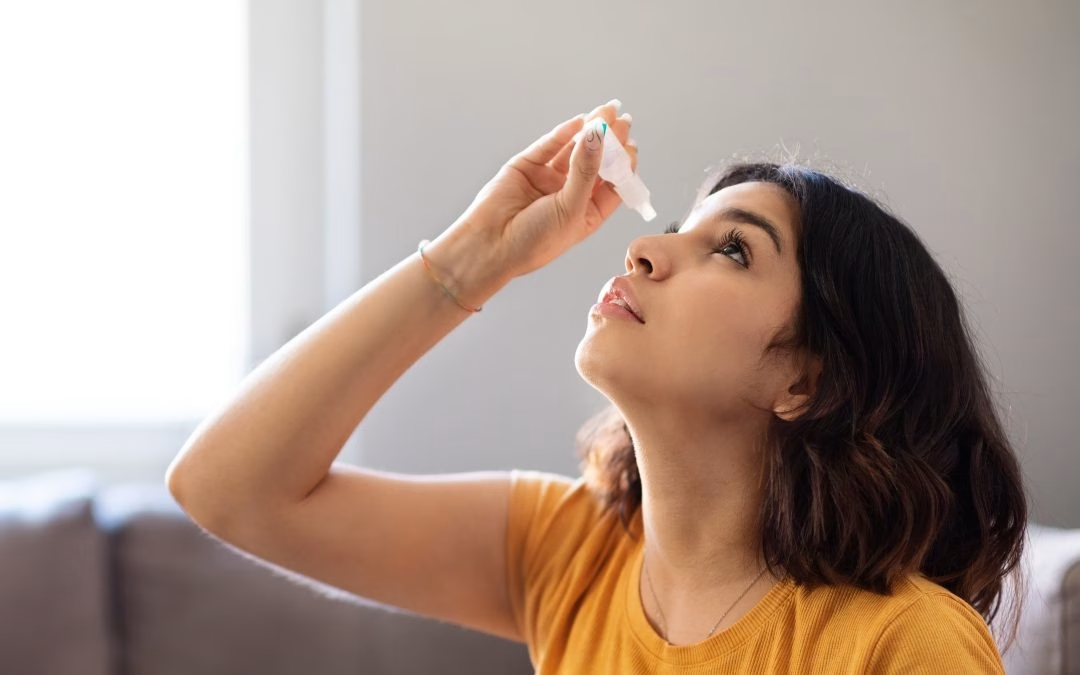
Is it pink eye or seasonal allergies? Understand the link to keep your child’s eyes healthy as fall allergens rise. Visit urgent care near you today for proper care.
As fall sets in and the air fills with allergens, it’s not uncommon for children in South Charlotte, NC, to experience eye irritation. With the excitement of local fall activities like SCarowinds at Carowinds Theme Park or visiting the Charlotte Regional Farmers Market, many parents find themselves wondering, “Is this pink eye or just seasonal allergies?” It can be tricky to tell the difference since both can cause red, itchy eyes. However, understanding the relationship between these two conditions is key to ensuring your child gets the right care. As you enjoy family outings to pumpkin patches or fall festivals, keep an eye out for symptoms of pink eye and encourage good hygiene practices to help keep your little one’s eyes healthy during this vibrant season.
Visit AFC South Charlotte today.
What Causes Allergies and Pink Eye?
While pink eye, or conjunctivitis, can be caused by viruses or bacteria, allergic conjunctivitis is triggered by allergens in the environment, such as:
- Pollen from trees, grass, and weeds
- Dust mites and mold spores
- Pet dander
- Smoke and air pollution
These allergens irritate the conjunctiva (the clear tissue covering the white part of the eye, leading to symptoms that mimic pink eye.
How to Tell the Difference Between Pink Eye and Allergies
Although both conditions share some similarities, there are a few telltale signs that can help you determine whether your child is dealing with allergies or conjunctivitis:
- Itchy eyes: A hallmark of allergies, while pink eye typically causes more discomfort than itchiness.
- Watery discharge: Allergies often cause clear, watery discharge, while pink eye can cause thicker, yellow or green discharge.
- Sneezing and nasal symptoms: Allergies are usually accompanied by sneezing, a runny nose, or congestion.
- Both eyes affected: Allergies often affect both eyes, whereas pink eye may start in one eye and spread to the other.
What About Allergic Conjunctivitis?
Allergic conjunctivitis is an inflammation of the conjunctiva (the thin, transparent tissue that covers the white part of the eye and the inner eyelids) caused by an allergic reaction. This condition typically occurs when the eyes come into contact with allergens, such as pollen, pet dander, mold, dust mites, or other environmental irritants.
Symptoms of Allergic Conjunctivitis
- Red, irritated eyes
- Clear, watery discharge
- Itching and burning sensation
- Puffiness around the eyes
- Both eyes typically affected at the same time
Treating Allergic Conjunctivitis
- Antihistamine eye drops: These can help relieve itching and irritation by blocking histamines that cause allergic reactions.
- Cold compresses: Placing a cool, damp cloth over the eyes can help reduce swelling and provide soothing relief.
- Oral antihistamines: Over-the-counter allergy medications can reduce overall allergy symptoms, including eye irritation.
- Avoiding allergens: Try to minimize your child’s exposure to common allergens by keeping windows closed and using air purifiers.
Preventing Allergic Conjunctivitis
You can take several steps to protect your child from allergens and reduce the risk of allergic conjunctivitis during peak allergy seasons:
- Keep windows closed during high pollen times.
- Use air conditioning or air purifiers indoors.
- Wash hands and face after spending time outside.
- Limit outdoor activities when pollen counts are high.
- Shower and change clothes after playing outdoors.
These small steps can make a big difference in reducing your child’s exposure to the allergens that trigger eye irritation.
When to Seek Medical Care
While allergic conjunctivitis can often be treated at home, there are times when a visit to urgent care may be necessary:
- Severe eye pain or discomfort
- Sensitivity to light (photophobia)
- Blurry vision that doesn’t improve
- Symptoms that last more than a week
- Fever or signs of a broader infection
In these cases, urgent care can provide a more thorough examination to rule out other forms of pink eye or more serious eye conditions.
Seasonal allergies and pink eye can often seem interchangeable due to their overlapping symptoms, but understanding the differences is key to effective treatment. Allergic conjunctivitis is common during the fall, but it can be managed with simple at-home remedies and over-the-counter medications. By keeping an eye on your child’s symptoms and taking proactive steps to minimize allergen exposure, you can help prevent discomfort and keep their vision clear as the seasons change. If in doubt, don’t hesitate to visit AFC Urgent Care South Charlotte to ensure your child’s eye health is in safe hands.


